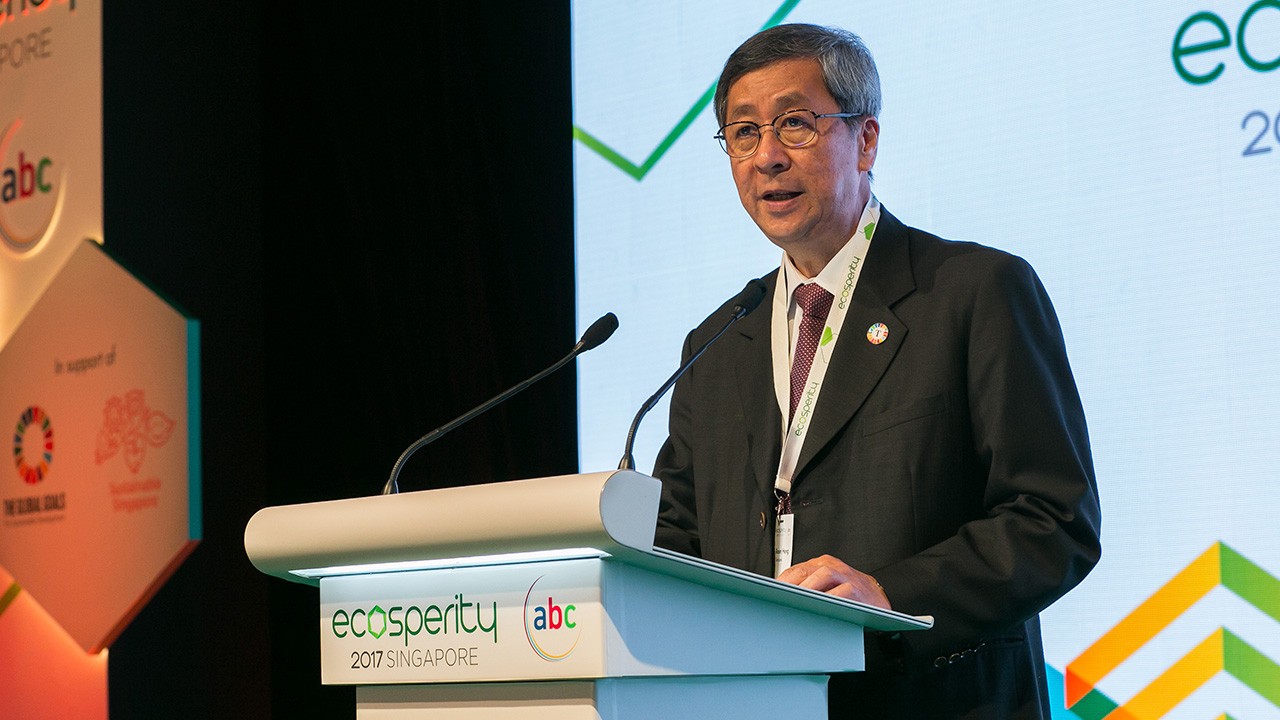Good morning distinguished guests, ladies and gentlemen.
Welcome Lord Mark Malloch-Brown and commissioners of BSDC. Welcome to our fourth annual Ecosperity conference and a warm welcome back for those of you who have been to this event before.
Ecosperity derives its meaning from two words – Ecology and Prosperity.
It is a recognition that growth can - indeed must - take place in a sustainable manner, where economic prosperity should go hand in hand with protecting our planet for future generations. So every year, we bring together leaders like yourselves to robustly exchange views on different topics, to share best practices, and to “spark” ideas on what can be done to help build a more sustainable tomorrow.
Some of you might recall that previous Ecosperity conferences were held in September. This year marks the start of our shift to the June window to coincide with a very special day today. Today is also World Environment Day.
The UN first designated a World Environment Day at the start of the UN conference on the Human Environment in Stockholm exactly 45 years ago. The aspirations and challenges that motivated our leaders nearly half a century ago continue to drive us today.








